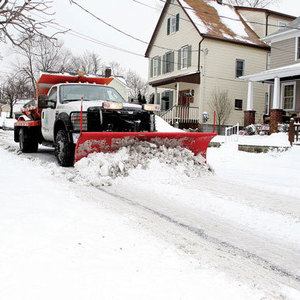NYC is Heating Up with America's Advanced Biofuel

January 3, 2020
BY The National Biodiesel Board
Like much of the nation, New York City is preparing for the onslaught of winter weather and frigid temperatures. But that’s not stopping the city from relying on biodiesel to power its fleet and heat municipal buildings.
The largest municipal fleet in the country, New York requires all city fleet vehicles and equipment to use B20 biodiesel from April through November, and B5 from December through March. However, biodiesel has performed so successfully that the city has started some B20 use year-round. In fact, NYC vehicles used more than 2 million gallons of B20 during the winters of 2017 and 2018 without any cold weather issues.
“We have used B20 successfully in the colder months,” said Keith Kerman, deputy commissioner for the Department of Citywide Administrative Services. “The real issue there is the mix, whether you mix with a D1 heavily winterized kind of kerosene fuel or what we call our winterized D2. When I was at the parks department in the late 2000s, we used B20 and D1 for the entire fleet over three consecutive winters and it was very successful.”
Today, more than 150 types of vehicles and equipment use biodiesel blends in the New York City fleet, including garbage trucks, mowers, beach-cleaning equipment, tractors, light towers and generators.
Even with application in 11,000 vehicles, the city has experienced virtually no fuel-related problems, according to Kerman.
There are many misconceptions about biodiesel’s cold weather performance. Just like with petroleum diesel, a few simple precautions can ensure that biodiesel-powered vehicles and equipment run smoothly all winter. They include:
• Use high-quality fuel that meets the ASTM spec purchased from a reputable supplier.
• Be sure to discuss fuel options with your supplier to ensure that both the diesel fuel and biodiesel are blended only after meeting their respective specifications.
• Develop a good fuel management plan, in partnership with your supplier, that includes additization (just like for regular diesel) to improve cold weather operability.
• Test fuel periodically to verify its cold weather properties.
• Make sure you understand your fuel’s cold flow characteristics and have appropriate fuel handling and storage plans in place.
• Remain diligent on your tank maintenance program to help ensure fuel cleanliness.
The success story seen out of NYC is one NBB hopes many states in the future plan to replicate. To learn more about New York City’s experience with biodiesel and biobased products, view recent videos at the National Biodiesel Board’s YouTube channel.
Advertisement
Advertisement
Advertisement
Advertisement
Related Stories
The U.S. EPA on July 8 hosted virtual public hearing to gather input on the agency’s recently released proposed rule to set 2026 and 2027 RFS RVOs. Members of the biofuel industry were among those to offer testimony during the event.
The USDA’s Risk Management Agency is implementing multiple changes to the Camelina pilot insurance program for the 2026 and succeeding crop years. The changes will expand coverage options and provide greater flexibility for producers.
President Trump on July 4 signed the “One Big Beautiful Bill Act.” The legislation extends and updates the 45Z credit and revives a tax credit benefiting small biodiesel producers but repeals several other bioenergy-related tax incentives.
CARB on June 27 announced amendments to the state’s LCFS regulations will take effect beginning on July 1. The amended regulations were approved by the agency in November 2024, but implementation was delayed due to regulatory clarity issues.
SAF Magazine and the Commercial Aviation Alternative Fuels Initiative announced the preliminary agenda for the North American SAF Conference and Expo, being held Sept. 22-24 at the Minneapolis Convention Center in Minneapolis, Minnesota.
Upcoming Events










